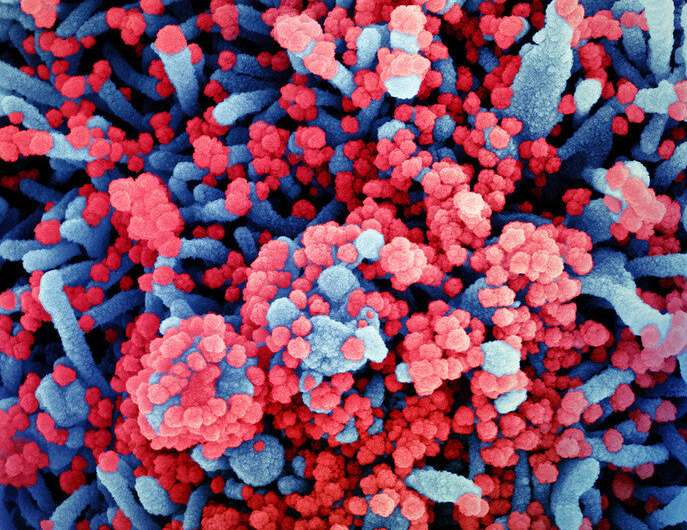
A laboratory-developed pseudovirus containing the mutations found in the SARS-CoV-2 501Y.V2 variant (first detected in South Africa) was resistant to neutralization when exposed to three types of COVID-19 therapeutic antibodies or convalescent plasma, according to a paper published in Nature Medicine. These findings raise the possibility of reinfection and suggest that vaccines that target the SARS-CoV-2 spike may not be as effective against emerging variants of the virus.
People infected with SARS-CoV-2 develop neutralizing antibodies that can persist for months and can protect a person from reinfection. These antibodies are also being pursued as potential therapeutic treatments for the virus. However, whether antibodies to SARS-CoV-2 can neutralize new variant strains has remained unclear.
Penny Moore and colleagues used a pseudovirus neutralization assay—a laboratory-generated single entry virus routinely used for such assays—that contained the mutations found in the viral spike protein of the SARS-CoV-2 501Y.V2 variant. They then compared neutralization of 501Y.V and the original lineage by three classes of antibodies and found that all three classes of antibodies neutralized the original lineage but not the 501Y.V2 variant. Next, the authors tested neutralization by convalescent plasma derived from 44 patients, including people hospitalized with severe COVID-19. There was a substantial loss of neutralizing activity in the samples assessed against the 501Y.V2 variant, and nearly half of the samples showed no detectable neutralization activity. Only three samples—from patients with severe symptoms—showed high levels of neutralization activity. Despite the lack of neutralization, these antibodies still bound to the variant spike, which suggests that they may help to provide protection in a different way.
Source: Read Full Article